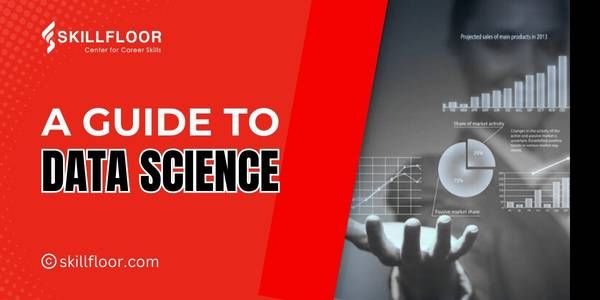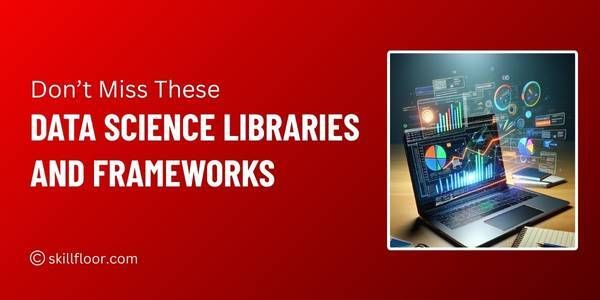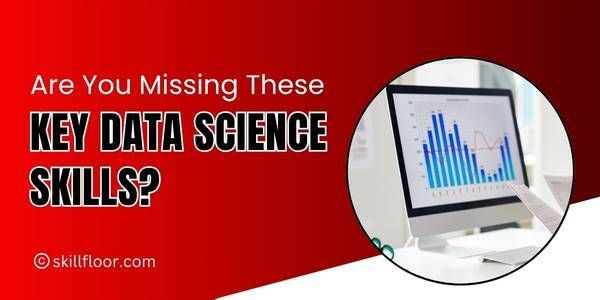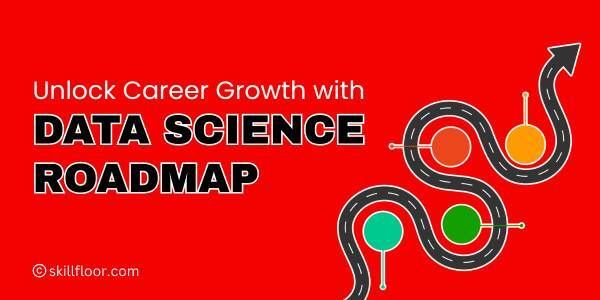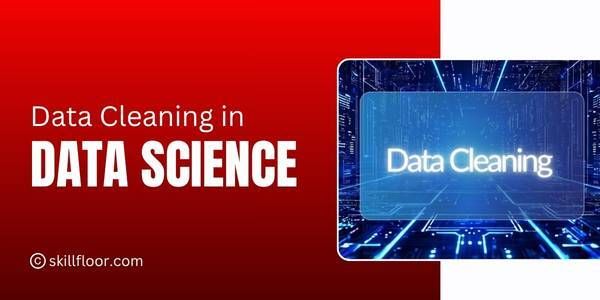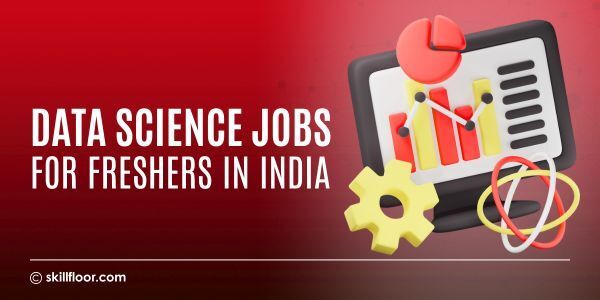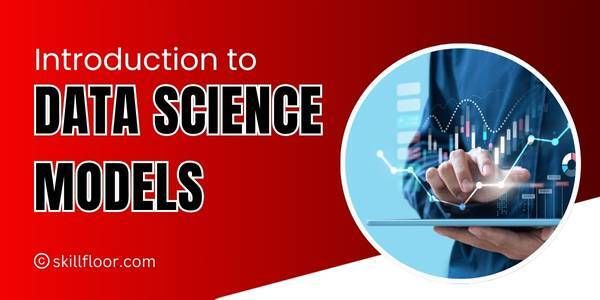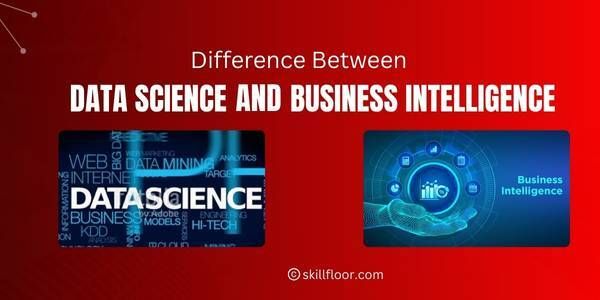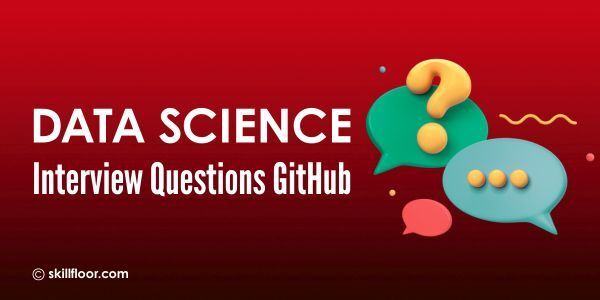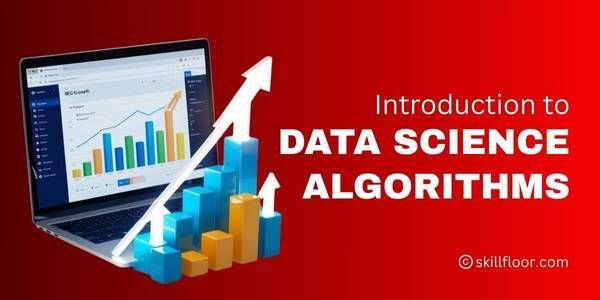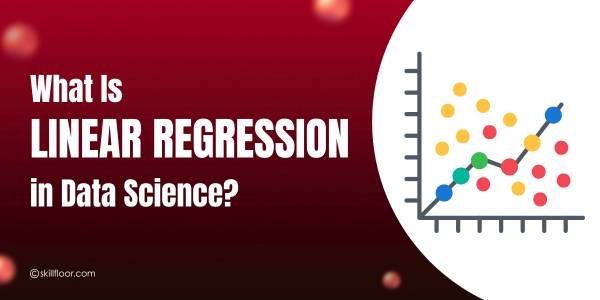TABLE OF CONTENT:
1. Benefits of learning data science
2. Data science syllabus
3. Data science eligibility
4. Data science technologies and tools
5. R vs python for data science
6. Choosing the right data science course
7. Choosing the Right Data Science institute
8. Data science life cycle
9. Career in data science
10.Data science future
Data science courses play a crucial role in meeting this demand by equipping individuals with the knowledge and skills needed to harness the potential of data. These courses set the stage for an impactful learning journey by providing comprehensive education on the core concepts, tools, and techniques of data science.
By enrolling in a data science course, individuals can unlock a world of opportunities and career prospects. The ability to make data-driven decisions has become a vital skill across industries, enabling businesses to gain a competitive edge and solve complex problems. Data science courses empower individuals to navigate the vast landscape of data, extract valuable insights, and drive innovation.
Choosing the right data science course is essential to ensure a meaningful learning experience. Factors such as learning objectives, course content, and the credibility of the course provider should be considered. A well-designed curriculum covers essential topics like data manipulation, exploratory data analysis, machine learning algorithms, and practical application through hands-on projects and case studies.
Data science courses go beyond theoretical knowledge, emphasizing the importance of practical application. Hands-on projects provide opportunities to apply learned concepts to real-world scenarios, fostering critical thinking and problem-solving skills. Additionally, access to learning resources, interactive platforms, and community engagement facilitates a supportive learning environment.
While data science education offers immense potential, there may be challenges to overcome. Complex algorithms, mathematical concepts, and data collection hurdles can pose difficulties, but with persistence and dedication, these obstacles can be overcome. Moreover, industry-relevant certifications and networking opportunities can enhance career prospects and open doors to advancement.
As the field of data science continues to evolve, staying updated with emerging trends and technologies becomes crucial. Lifelong learning and continuous skill development are necessary to remain competitive in this dynamic landscape. Ultimately, data science courses have the power to transform careers and pave the way for exciting opportunities in a data-driven world.
1. Benefits of Learning Data Science:
-
High Demand: Data science professionals are in high demand across industries due to the increasing volume of data and the need for data-driven decision making.
-
Lucrative Career Opportunities: Data science offers excellent career prospects and competitive salaries, with opportunities for growth and advancement.
-
Solving Complex Problems: Data science equips you with the skills to tackle complex problems and extract valuable insights from large and diverse datasets.
-
Business Decision Making: Data science enables organizations to make informed and data-driven decisions, leading to improved efficiency, profitability, and competitive advantage.
-
Versatility: Data science skills are applicable across various domains, including healthcare, finance, marketing, e-commerce, social media, and more.
-
Innovation and Discovery: Data science fosters innovation by uncovering hidden patterns, trends, and relationships in data, leading to new discoveries and insights.
-
Predictive Analytics: Data science enables the development of predictive models, allowing organizations to anticipate trends, customer behavior, and future outcomes.
-
Automation and Efficiency: Data science techniques automate repetitive tasks, streamline processes, and enhance operational efficiency.
-
Personalization and Customer Experience: Data science enables personalized recommendations, targeted marketing campaigns, and enhanced customer experiences based on individual preferences and behavior.
-
Continuous Learning and Growth: Data science is a rapidly evolving field, offering continuous learning opportunities and the chance to stay at the forefront of technological advancements.
-
Interdisciplinary Collaboration: Data science requires collaboration with professionals from various backgrounds, fostering interdisciplinary teamwork and a broader understanding of complex problems.
-
Social Impact: Data science has the potential to drive positive social impact, such as improving healthcare outcomes, tackling climate change, and addressing societal challenges through data-driven solutions.
2. Data Science Syllabus:
Here is a sample data science syllabus presented as a list of points. Note that this is a general outline and the specific topics covered may vary depending on the institution or course
-
Introduction to Data Science
-
Mathematics and Statistics for Data Science
-
Programming Fundamentals
-
Data Manipulation and Analysis
-
Machine Learning
-
Big Data and Cloud Computing
-
Data Mining and Knowledge Discovery
-
Data Ethics and Privacy
-
Data Science Projects and Case Studies
-
Capstone Project
3. Data Science Eligibility
To be eligible for a data science program or position, individuals typically need a solid educational background and a set of skills relevant to the field. While specific requirements may vary, here is a paragraph outlining the general eligibility criteria for data science:
To pursue a career or academic program in data science, individuals generally need at least a bachelor's degree in a related field such as computer science, mathematics, statistics, engineering, or a quantitative discipline. A strong foundation in mathematics and statistics is crucial, as data science involves working with complex datasets and applying statistical analysis to extract insights. Proficiency in programming languages like Python or R is also essential, as these languages are widely used for data manipulation, analysis, and machine learning. Additionally, familiarity with database systems and SQL is often required, as data scientists often work with large datasets stored in databases. Strong analytical and problem-solving skills are highly valued, as data scientists need to identify patterns, develop models, and draw meaningful conclusions from data.
Effective communication skills are also important, as data scientists often need to present their findings and insights to stakeholders in a clear and understandable manner. Continuous learning and staying up-to-date with the latest tools, techniques, and trends in data science is essential for professional growth in this rapidly evolving field.
4. Data Science Technologies and Tools
Learning data science involves gaining proficiency in various tools and technologies that are commonly used in the field. Here is a paragraph describing some of the key tools and technologies in data science:
Learning data science entails familiarizing oneself with a range of tools and technologies essential for working with data. Python and R are widely used programming languages in data science, offering extensive libraries and frameworks for data manipulation, analysis, and machine learning. Familiarity with SQL and database systems is crucial for handling and querying large datasets stored in relational databases. Data visualization tools like Tableau, matplotlib, and ggplot enable effective presentation of insights. Knowledge of big data frameworks such as Apache Hadoop and Apache Spark is valuable for processing and analyzing massive datasets. Additionally, proficiency in machine learning libraries like scikit-learn and TensorFlow empowers data scientists to build and deploy predictive models. Version control tools like Git facilitate collaboration and code management. Proficiency in cloud platforms like AWS and Azure allows for scalable and efficient data processing and storage. Finally, proficiency in data wrangling and analysis tools like Pandas, NumPy, and Jupyter Notebooks enhances data manipulation and exploration capabilities. Mastering these tools and technologies equips data scientists with the necessary skills to extract valuable insights and derive meaningful conclusions from data.
5. R vs Python for Data Science
When it comes to choosing between R and Python for data science, both languages have their strengths and are widely used in the field. Here is a paragraph comparing R and Python in the context of data science:
R and Python are two popular programming languages extensively used for data science. R has long been favored by statisticians and researchers due to its rich statistical libraries and packages specifically designed for data analysis. It provides a wide range of statistical techniques, making it ideal for statistical modeling, data visualization, and exploratory data analysis. On the other hand, Python has gained popularity among data scientists for its versatility, readability, and vast ecosystem of libraries. Python offers robust libraries such as NumPy, Pandas, and scikit-learn, which provide powerful tools for data manipulation, preprocessing, and machine learning. Python's flexibility extends beyond data science, making it suitable for a variety of tasks, including web development and automation.
Additionally, Python has gained traction in the industry due to its scalability and integration capabilities with big data frameworks like Apache Spark. Ultimately, the choice between R and Python depends on personal preference, specific project requirements, and the ecosystem and libraries best suited for the task at hand. Many data scientists choose to become proficient in both languages to leverage their respective strengths and maximize their analytical capabilities.
6. Choosing the Right Data Science Course
While selecting the right data science course, it is important to consider several key factors. Start by assessing the course content and ensuring that it covers the essential topics in data science, such as statistics, machine learning, programming, and data analysis. Look for courses that provide hands-on experience through practical projects and real-world applications. Consider the qualifications and expertise of the instructors, as their knowledge and experience are critical to a quality learning experience. Additionally, check for any industry recognition or accreditation that the course may have, as this can enhance your credibility and job prospects. Flexibility in terms of course duration, format (online or in-person), and scheduling is also important, as it should align with your availability and learning preferences. Finally, consider the cost and value of the course, weighing the investment against the skills and knowledge you will gain. By carefully evaluating these factors, you can choose a data science course that meets your specific needs and helps you achieve your career goals.
7. Choosing the Right Data Science Institute
When selecting the right data science institute, several factors should be considered. Firstly, look for institutes with a strong curriculum that covers essential topics in data science, such as mathematics, statistics, programming, machine learning, and data analysis. Additionally, consider the faculty's expertise and experience in the field, as knowledgeable instructors can provide valuable insights and guidance. Practical exposure and hands-on projects are crucial for applying theoretical concepts, so ensure that the institute offers opportunities for real-world applications and project-based learning. Reputation and industry connections are also important, as they can provide networking opportunities and increase job prospects. Finally, consider the institute's infrastructure, resources, and access to relevant tools and technologies to ensure a conducive learning environment. Ultimately, choose an institute that aligns with your learning goals, provides comprehensive training, and offers opportunities for growth in the field of data science.
8. Data Science Life Cycle
The data science life cycle refers to the iterative process followed in data science projects. It typically consists of several key stages. First, there is the problem formulation and data acquisition phase, where the project goals are defined, and relevant data is collected or sourced. Next comes the data preparation and exploration stage, involving cleaning, transforming, and preprocessing the data to ensure its quality and suitability for analysis. This is followed by the modeling phase, where statistical and machine learning techniques are applied to build predictive or descriptive models using the prepared data. Once the models are developed, they are evaluated and validated using appropriate metrics and techniques.
After model evaluation, the deployment phase involves implementing the models in a production environment, making them accessible for decision-making and action. Finally, the life cycle concludes with the maintenance and monitoring stage, where the models are continuously monitored for performance, updated with new data, and refined as needed. The data science life cycle is a dynamic and iterative process that emphasizes the importance of data quality, model development, evaluation, and continuous improvement to ensure effective data-driven decision-making.
9. Career in Data Science:
-
Growing Demand: Data science professionals are in high demand across industries as organizations increasingly rely on data-driven decision-making.
-
Lucrative Salaries: Data scientists often enjoy competitive salaries and attractive compensation packages due to the demand and specialized skills required.
-
Variety of Industries: Data science offers opportunities in various industries, including finance, healthcare, technology, e-commerce, marketing, and more.
-
Solving Complex Problems: Data scientists tackle challenging problems by analyzing and interpreting data to derive actionable insights and solve real-world issues.
-
High-impact Contributions: Data science enables professionals to make a significant impact by leveraging data to drive business growth, optimize processes, and improve decision-making.
-
Continuous Learning: Data science is a rapidly evolving field, requiring professionals to continuously learn new tools, techniques, and algorithms to stay up-to-date.
-
Versatile Skill Set: Data science involves a combination of skills such as programming, statistical analysis, machine learning, data visualization, and domain knowledge, making it a versatile career choice.
-
Collaboration Opportunities: Data scientists often collaborate with multidisciplinary teams, including business analysts, engineers, and domain experts, fostering an environment of teamwork and diverse perspectives.
-
Career Advancement: Data science offers ample opportunities for career growth, with possibilities to move into leadership roles, specialization in specific domains, or becoming data science consultants
-
Positive Social Impact: Data science can be used to address societal challenges, such as healthcare outcomes, climate change, poverty alleviation, and more, contributing to positive social impact.
-
Continuous Innovation: Data science professionals are at the forefront of technological advancements, exploring new algorithms, methodologies, and tools to drive innovation and solve complex problems.
-
International Opportunities: The demand for data scientists is global, providing opportunities to work with diverse teams and organizations around the world.
10. Data Science Future
Data science courses are constantly evolving to keep up with emerging trends and provide specialization options. These courses adapt to the changing landscape of the field, incorporating new technologies, methodologies, and industry demands. Learners have the opportunity to explore cutting-edge topics such as artificial intelligence, deep learning, and big data analytics, among others. Specialization options allow individuals to focus their learning on specific domains or areas of interest within data science, such as healthcare analytics, financial analysis, or social media mining.
Bridging the gap between academia and industry demands is a crucial aspect of data science courses. Recognizing the need for practical skills and real-world application, these courses incorporate hands-on projects, case studies, and industry collaborations. By providing practical experiences and exposure to industry-relevant tools and techniques, data science courses equip learners with the skills demanded by employers and enable them to effectively translate their knowledge into practice.
Lifelong learning is essential in the dynamic field of data science. Data science courses emphasize the importance of staying updated with the latest advancements, tools, and methodologies. Continuous learning allows professionals to stay ahead of emerging trends, adapt to changing technologies, and expand their skill set. Data scientists are encouraged to engage in ongoing education, participate in workshops, attend conferences, and explore new resources to enhance their knowledge and remain at the forefront of the field.
On a short note, Data science courses possess a transformative power that can shape careers and drive innovation in the digital era. These courses equip individuals with the skills and knowledge necessary to navigate the world of data and make data-driven decisions. By recapitulating the transformative power of data science courses, we can see the immense value they hold.
It is essential to encourage individuals to embark on a data-driven learning journey. With the rising demand for data skills and the growing importance of data-driven decision making, there are abundant career opportunities waiting to be seized. By embracing data science education, individuals can position themselves for success in diverse industries and contribute to meaningful change.
Data science education brings numerous opportunities. From unlocking career prospects to empowering individuals to harness the power of data, the possibilities are endless. By enrolling in a data science course, individuals can acquire the skills to extract insights from data, solve complex problems, and drive innovation.
It is crucial to recognize the transformative power of data science education and encourage others to embrace it. By embarking on this learning journey, individuals can tap into the potential of data, adapt to the evolving industry landscape, and stay ahead in the digital age.
Related Posts
Ultimate Guide to Data Wrangling in Data Science
Master data wrangling in data science with this ultimate guide. Learn and cleani...
Data Science Jobs Without Coding Roles
Explore data science jobs that do not need coding. Learn roles, skills, and tool...
Learn Data Science Course for Free on Udemy
Start learning data science for free on Udemy. Explore beginner-friendly courses...
Introduction to Feature Engineering in Data Science
Learn how Feature Engineering in Data Science transforms raw data into clear, me...
Free Data Science Courses for Learning and Career Growth
Discover the top free data science courses to learn Python, SQL, machine learnin...
Career Change from Non-IT to IT via Data Science
Make a successful shift from non-IT to IT with Data Science. Discover essential ...
Best Data Science Libraries and Frameworks in 2025
Discover the best data science libraries and frameworks in 2025 to enhance your ...
Quick and Easy Guide to Classification in Data Science
Learn classification in data science quickly with this easy, step-by-step guide....
Does Data Science Require Coding?
Discover if data science really requires coding. Learn essential skills, explore...
Are You Missing These Key Data Science Skills?
Discover if you’re missing key data science skills. Learn practical methods and ...
Step-by-Step Road Map for Data Science Beginners
Explore a simple road map in data science designed for beginners. Learn Python, ...
Beginner’s Guide to Data Cleaning in Data Science
Learn data cleaning in data science with easy steps. Fix errors, handle missing ...
Data Science Jobs in India for Freshers
Find the best data science jobs in India for freshers. Discover roles, skills, s...
Introduction to Data Science Models
Discover how data science models work to find patterns, make predictions, and tu...
Difference Between Data Science and Business Intelligence
Discover the difference between data science and business intelligence, their to...
Data Science Interview Questions GitHub: Your Ultimate ...
Explore top GitHub repositories for data science interview questions. Practice c...
A Simple Introduction to Data Science Algorithms
Learn the basics of data science algorithms, types, examples, and how to choose ...
Understanding the Salary of a Data Scientist in India
Discover the average salary of a data scientist in India, factors that influence...
Data Preparation in Data Science
Discover the importance of data preparation in data science. It involves cleanin...
What Is Linear Regression in Data Science?
Learn what linear regression is in data science, how it helps find the link betw...















































